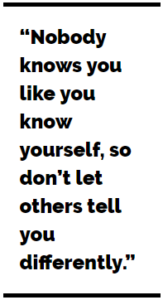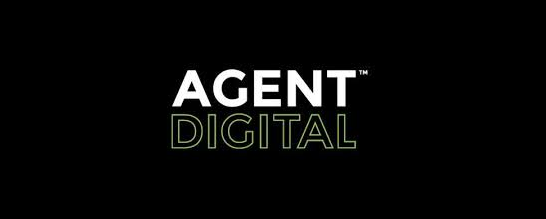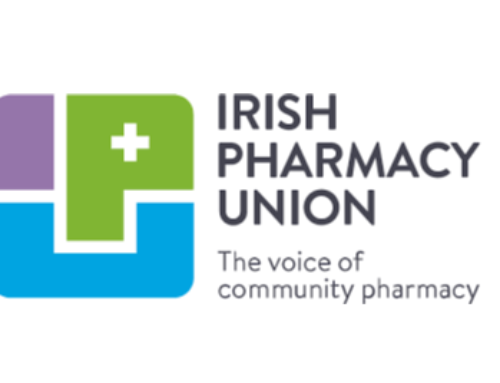AGENT Q&A | 12 Questions for John Cassidy, CEO, TouchStore
Find the articles here: Agent Media
“Nobody knows you like you know yourself, so don’t let others tell you differently.” John Cassidy, CEO of successful PMR software solutions provider TouchStore, was bitten by the business bug at the age of 16, but he acknowledges that it’s easy to become too concerned about what others think you should be doing.
John Cassidy is the CEO of TouchStore, a software business that provides one of the most innovative and fastest-growing Patient Medication Records (PMR) solutions for retail and pharmacy, initially in Ireland and now the UK.

The aptly named TouchStore app enables pharmacy owners and managers to keep track of the activities of their stores, and a range of operations including outgoing prescriptions, sales and other analytics.
John Cassidy has played a crucial role in the growth of the company in Ireland. Testament to his focus and drive is that a central aspect of the three-year business plan he and his team drew up in 2016—to take the company’s products to a point where TouchStore could begin exporting to the UK—was achieved in just 11 months.
This has been instrumental in the company’s shortlisting for SME of the Year in the prestigious Limerick Chamber Regional Business Awards 2019.
For John Cassidy, the shortlisting has been the highlight not just of the company’s history, but also of his own entire career in business since he was first bitten by the entrepreneurial bug at the age of 16.
Despite the achievement, there is no sense of John Cassidy resting on his laurels. The commencement of exporting to the UK is the fulfilment of every Irish entrepreneur, but the focus on Ireland remains as strong as ever, and John is in no doubt that 2019 will be the company’s biggest year to date.
12 Questions for John Cassidy
John Cassidy cleared some time in his busy schedule to speak with AGENT about his life in business so far, the recent achievements of TouchStore, his entrepreneurial inspirations, satisfactions and challenges. He also shared some of the lessons that he would pass on to young entrepreneurs setting up in today’s challenging business climate.
1. Briefly tell us about your business and your business goals.
TouchStore is a software company providing Retail and Pharmacy PMR (Patient Medication Records) solutions for the Irish market. We recently launched our retail product in the UK market. Our PMR system gives pharmacies speed, stability and resilience, while also improving patient experience and business effectiveness. Our retail system is a cloud modular-based software package that provides retail operators with access to critical information to enable them run their business more effectively. If you walk into any McCabes Pharmacy, Haven Pharmacy, or INGLOT cosmetic stores, among others, you’ll see our systems in action!
2. What age were you when you realised you wanted to run a business?
I grew up in business. During my childhood, my father owned two pharmacies in Limerick and worked 7 days a week. At the age of 16 I wanted to change secondary schools, to put myself in the best position to get into the college course I needed. I was made write a letter to my father as to why I wanted to attend. I told him what course I wanted to do in college and my career aspirations. He still has that letter to this day and I seem to be on track so far. So I guess you could say 16.
3. Who are your business icons and inspirations?
I wouldn’t say there is one individual who I look up to, but I am a big fan of people who capitalise on advantageous positions they find themselves in, to secure their future. Take David Beckham for example, last year it was reported that he earned £71,000 a day. There is no stopping Brand Beckham. Even though he has long retired from football, his empire keeps on growing. I can see McGregor going down the same route.
While working in the US, I met a guy called Craig Barrett, former CEO of Intel. He left a lasting impression on me as he started out in the company at a low level and worked his way up to the top. He was also in charge when the Dot-com bubble burst and while pressure mounted on him to reduce spending; he pumped money into R&D, which is probably the reason Intel are such a global powerhouse today.
4. What has been your biggest challenge in business, and how did you surmount it?
I am currently going through it. When I become CEO of TouchStore last year, it was a big dream of mine to start exporting our products to the UK. However, making this side of the business profitable can be difficult as our cost of acquisition is much higher. Conversely, we have a lot going on in the background to make this achievable in a very short space of time. At the same time, it’s of great importance to me that our key focus remains on the Irish market and growing our foothold here. I have no doubt 2019 will be our best year yet!
Apart from this, I completed an MBA last year. Working full-time and studying for two years in an extremely demanding course was definitely a major challenge.
5. What gives you the most satisfaction in business?
Drawing up a plan, and following it through with success. Around a year ago, I sat down with my management team and we put together a three-year strategic plan for the business. The focal point of the plan was around growth. Without mentioning exact figures, the three main areas (among others) of this plan were to:
- Significantly grow our foothold in the Irish market by delivering a product which would be attractive and sold to a major pharmacy buying group.
- Target and sell our system to the cosmetic sector from a retail system standpoint.
- Get our products to a point where we could start exporting to the UK market.
We managed to deliver on these aspects of the three-year plan in just 11 months. It was therefore no surprise that the company has been shortlisted for SME of the Year. That has been, without doubt, the highlight of our company history and also in my professional career.
6. Work-Life balance: is it possible? How do you achieve it?
It’s hard, but yes it’s definitely possible. Once I leave work, I do think about it and leave myself open to be contacted at any time, but I make sure I don’t talk about it with friends or family unless I am pushed. If a friend or family member asks me how is work, I’ll always respond with a simple answer such as “good” or “busy” etc. And I will say this even if I’ve had the worst day ever or the best day ever. A lot people spend too much time outside of work talking to others about how bad their day/week has been in work and all it achieves is additional stress for you and the people around you. So in my opinion, an individual has total control on their work-life balance.
7. What is the first thing you do every day?
I look at my emails, just to see what I’m in for. Then I make porridge with a crushed banana, followed by a few eggs, washed down with a cup of tea!
8. What screen saver picture is currently on your phone?
It’s a picture of a scenic beach. The beach is one of those places where I feel the calmest, so the decision was obvious.
9. What is the most important app on your mobile phone, and why?
That’s a very tough question; it’s hard to narrow it down to one. It used to be Whatsapp as we have a few work groups on this. However this has now migrated over to Slack, so I’d probably have to say Slack.
10. What is the last thing you Googled?
I guess I’ll have to be honest here… ‘How to make homemade beef jerky’. I was recently in South Africa and tasted the nicest beef jerky I’ve ever had. We get really poor quality jerky in Ireland, so why not try and do it myself!
11. What item do you never leave the house without, and why?
I wish I had a less mainstream answer, but it would be my phone. The majority of my colleagues and customers contact me on my mobile rather than my office phone. Apart from that, my wallet and my gym bag come with me every morning!
12. What advice would you give to your younger self starting out in business?
Stop worrying about what others think is the right decision, and listen to yourself. I spent a good portion of my late teens/early twenties overly concerned about what others thought I should be doing, and what decisions I should have been making, rather than doing what I believed was right for me. Nobody knows you like you know yourself, so don’t let others tell you differently.


